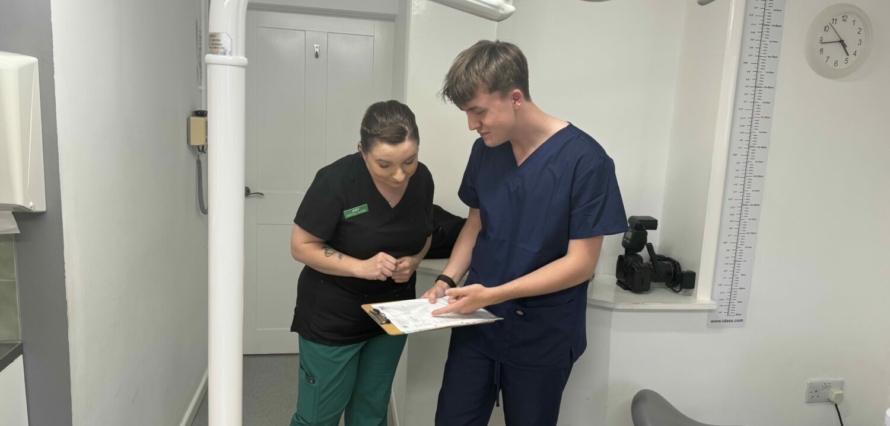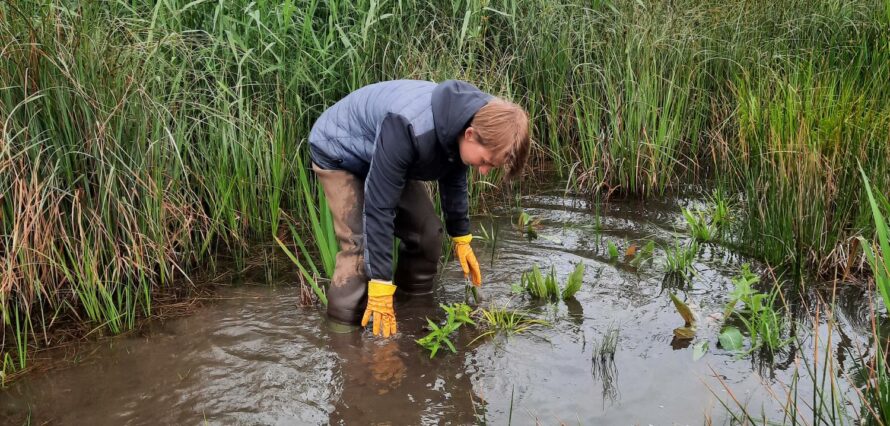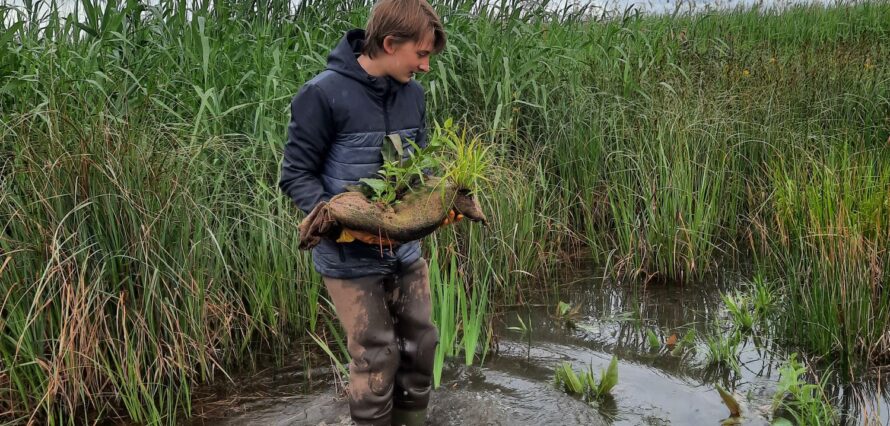
Sixth Form Industry Week
Thursday 19 June 2025 | By System AdminSixth Form students enjoyed an exciting week of work experience placements as part of the newly-introduced Sixth Form Industry Week at the start of June.
Industry Week placements
Maxwell spent his time at Nosterfield Nature Reserve where he assisted the Lower Ure Conservation Trust with their conservation activity. Maxwell participated in countless fascinating tasks from pulling Himalayan balsam from a stream and clearing sow-thistle from Neolithic henges to carrying out a butterfly transect and planting various aquatic plants in the fen. You can read about his hands-on experience below.
Elsewhere, Barnaby had an eye-opening week into the world of dentistry, where his interest in Psychology saw him collecting and reviewing data around the anxiety of patients when they visited his placement practice.
It’s been wonderful hearing how these experiences have broadened students’ horizons, or focused their career plans. If you or your business could support our pupils in their Industry Week placements, we would love to hear from you.
Maxwell’s Work Experience
During the first week of June, Year 12 students were busy at their respective work experience placements for Industry Week. There was a wide variety of placements, from civil engineering to clinical psychology. For me, I spent four days working hard at a nature reserve.
I have always had an affinity with nature and the outdoors (particularly the insects – the myriad little beasts that make our world go round) so I could think of nothing better than spending long summer days amongst the wild, helping to restore valuable habitats to their best condition.
The first day was spent making my way down a small stream (with others) clad in waders, pulling an invasive plant called Himalayan balsam to remove alien species from the waterside habitat. This was hard work, especially as the weather couldn’t make its mind up between blazing sunshine and torrential downpours! It was tiring but a successful task and I went home with a smile on my face, tired limbs and slightly wet socks.
Day 2 saw me visit an important Neolithic site (nicknamed, the middle henge) which hosts a variety of rare plants specialised to growing in nutrient-poor soils. The task was simple, clear the henge of another invasive weed, this time-prickly sow thistle. I armed myself with a plant slasher and spent the next three hours chopping thistles here, thistles there, thistles everywhere! I found this a very fun, satisfying task and the end results proved my hard work.
The afternoon was certainly more relaxed. It consisted of a walk around the reserve to carry out a butterfly transect. Butterflies and moths are quite possibly my favourite group of animals. Unfortunately, the strong breeze meant that there were not too many butterflies to be counted. Notable sightings included the brown argus, a small orange-spotted brown butterfly which has a restricted range in the North-East and the cinnabar moth – a brightly coloured day-flying moth decorated with black and red coloured wings. The day was thoroughly enjoyable and again, I went home with a wide grin which did not last long as I soon fell asleep!
Thursday saw me develop a new skill, fence building and installing a gate. This was important as the previous fence had worn and grown inadequate at keeping out rabbits from the plant nursery. It was hard work, digging, sawing, drilling, chiselling, wire-cutting and bashing posts but we eventually got the job done!
The final day started with a catch-up with Yorkshire’s county moth recorder and a look at some moths that were caught in the trap during the night. Following this, we donned waders and waterproofs and walked a mile or so down to another stream to do one last day of Himalayan balsam pulling. The day was warm and luckily, dry.
Overall, my time at Nosterfield Nature Reserve was thoroughly enjoyable and a fantastic experience, helping me to develop new skills to maintain ecosystems and habitats for the local wildlife, particularly insects.
Doing work experience is important, not only does it help you develop vital skills for a possible new career, it also looks very good to prospective employers on your CV.
Maxwell, Year 12







